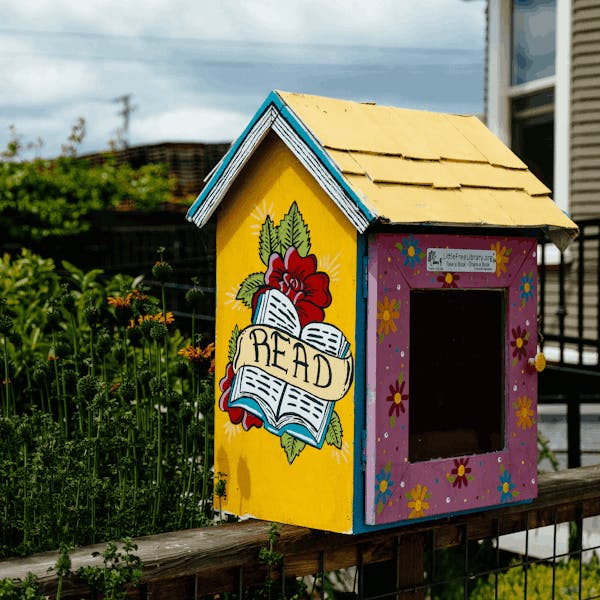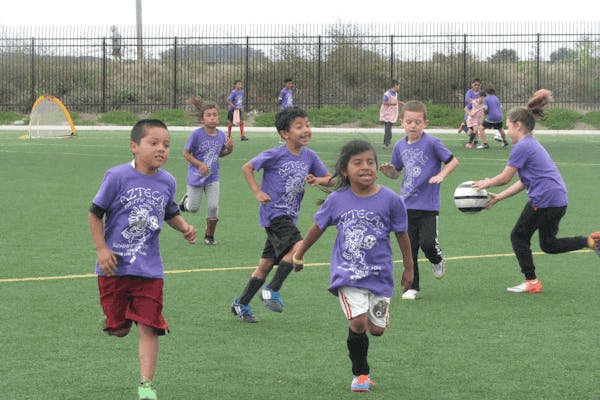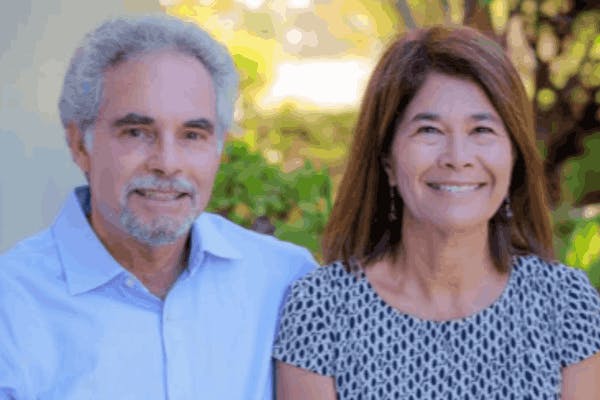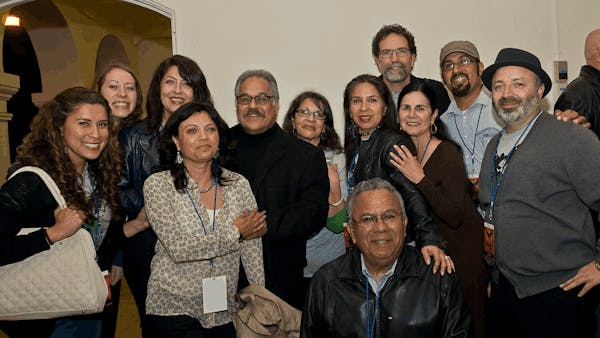
Celebrating a Decade of the Watsonville Film Festival
"Querer es Poder" - Where There's a Will, There's a Way
Consuelo Alba’s voice gets choked with emotion when she recalls the first time she sat in the audience to watch her film “El Andalón” on the big screen. “It was magical,” she says. Her short documentary about an activist and healer in Chiapas, Mexico, premiered at a big festival in Hollywood. But Consuelo says that it didn’t matter whether she was in Los Angeles, Chicago, Mexico City, or the Mello Center in Watsonville–sharing her movie is always transformative, both for her and the audience.
“As a filmmaker,” she says, “you have the privilege and the honor to be in the space of someone who is trusting you to tell their story. Then you have hours of footage and you sit in a dark room for weeks and months piecing it together. You put your best intention, your heart, and your soul into it. And then you get to share it.”
For some in the audience, Consuelo says “El Andalón” helped them meet people and hear stories from a completely different culture. And for others, it was the first time they’d ever seen their language, their experience, and their lives shown on a screen.
It’s this powerful combination of a film’s ability to celebrate shared humanity, make stories visible, spark conversation, and build bridges that propelled Consuelo and a team of Watsonville-based filmmakers, educators, and activists to hold the Watsonville Film Festival in 2012.
It was only going to be a one day, one time event.
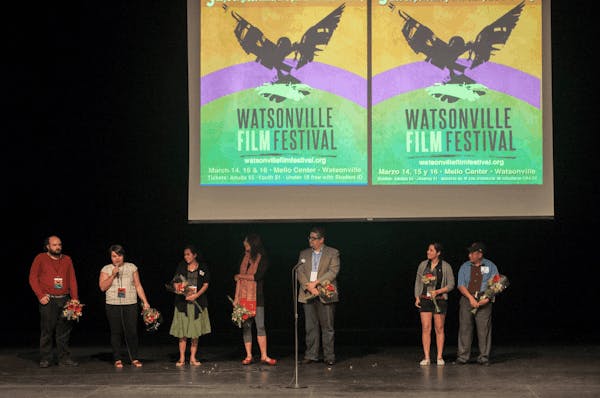
The Air Was Electric
“All we knew,” she says “was that there were really important stories in our community that weren’t being shown and we had local filmmakers’ work and youth projects that we wanted to share.”
The festival sold out quickly and the Mello Center was packed. “When we showed the films, people recognized each other. My neighbor! My uncle! My fiancée made that film! There was electricity in the air.”
After the lights came up on that first day, a woman made her way through the crowd to reach Consuelo. She was visibly moved “My son is so proud to be from Watsonville after he saw these movies. Now he wants to be a filmmaker because he saw someone like him doing this.”
At the end of the event, everyone in the team looked at each other and knew they had to do it again next year. ”
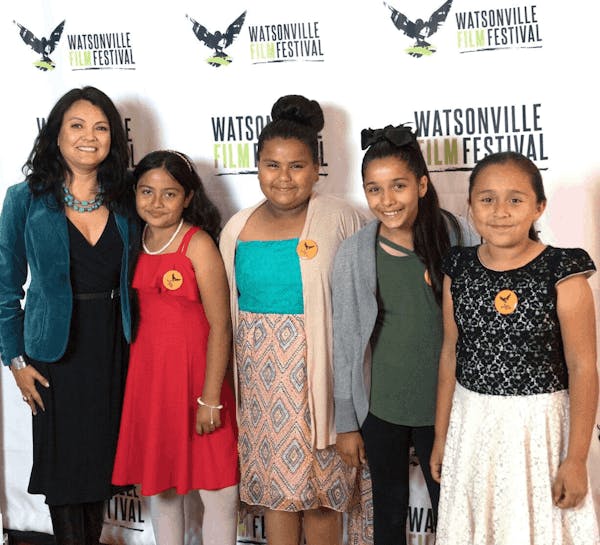
Creating an Ecosystem
This year, WFF presents their 10th anniversary program March 11 - 20th which showcases 15 feature-length films and 16 shorts. Seven of the films were made locally, including Disposable which was made by emerging filmmakers and youth from Digital NEST, the technology workforce development center with branches in Watsonville and Salinas.
As WFF evolved into a full-fledged nonprofit organization, consistently funded by the Community Foundation and gifts from Donor-Advised fundholders, Consuelo and her team wanted to help support the ecosystem for aspiring filmmakers in Watsonville. There’s a pathway that starts with the Youth Cinema Project, a filmmaking program for elementary and middle school students through Pajaro Valley Unified School District. Students can then be part of the Video Academy at Watsonville High and study video editing and film production at Digital NEST. But after they aged out of those programs, they were on their own.
“So many Latinx filmmakers can’t move their projects and careers forward because it is extremely hard to enter an industry where we have been historically excluded,” says Consuelo. She points out that in the last 10 years, only 4.5% of movies featured Latinx characters, many of them negative stereotypes. Locally, says Consuelo, there is even more limited access to mentorship, industry connections, and funding. The new Cine Se Puede Fellowship aims to address that gap. Funding for Cine Se Puede comes from Rise Together Santa Cruz County, an initiative of the Community Foundation, which works with local leaders of color to advance racial equity in Santa Cruz County.

Yes, We Can
There are now seven Cine Se Puede fellows, one from Santa Cruz and the rest from Watsonville.
Consuelo says that they’re all at different stages of their careers and in different mediums including documentarians, animators, and narrative filmmakers. The fellowship includes up to $1,000 to fund their project, mentorship, networking opportunities, pitch sessions with industry specialists, and support for 13 months.
One of the inaugural fellows is Eugenia Rentería, the executive director of Inspira Studios, a Watsonville-based company that works in video production, photography, and Spanish/English translation. Her series pilot “Amor en Cuarentena” (Love in Quarantine) is part of the 2022 WFF shorts collection. (Eugenia and her team have also produced several videos for the Community Foundation including stories about the COVID-19 relief fund and Donor-Advised funds)
Eugenia said it’s been really validating to gather in community with other local filmmakers. “It’s been great to see what others are working on and it’s given me the push to keep going.” She’s especially grateful for the connections that WFF is providing to the film industry. “These are contacts I wouldn’t have been able to make otherwise.”
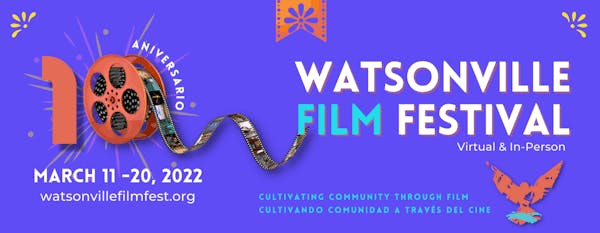
Making Time for Joy
Aside from one in-person event, the 2022 Watsonville Film Festival will be completely virtual. Consuelo and her team learned how to do virtual events quickly after they had to cancel their March 2020 festival with two days' notice due to the COVID pandemic.
It was heartbreaking and stressful at the time, but as a kid, Consuelo’s father always told her, “querer es poder,” which in English means, “where there’s a will, there’s a way.” He also modeled “ingenio mexicano” which basically translates to the ability to come up with creative solutions infused with flair and resourcefulness.
With a combination of free streaming, Zoom discussions with filmmakers, and celebrations in the Watsonville Plaza when it was safe, Consuelo says that the 2020 and 2021 festivals were a huge success. In fact, their audience grew by 300% last year because of the increased accessibility.
“In these past two years, the Latinx community has been so disproportionately devastated by COVID in terms of illness, death, and economic fallout. Telling our stories is even more important now, to show others and to remind ourselves of how we survive and persist. As we heal together as a community, whether in person at the Plaza, at the Mello Center, or online, we have to make time for joy– joy in our stories and joy in our collective strength.”
